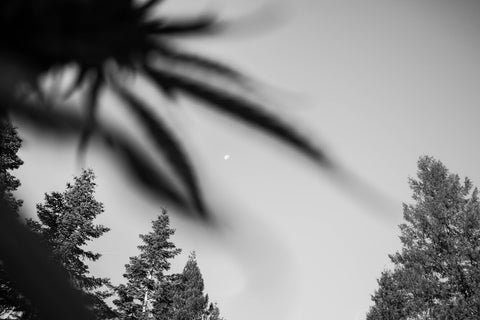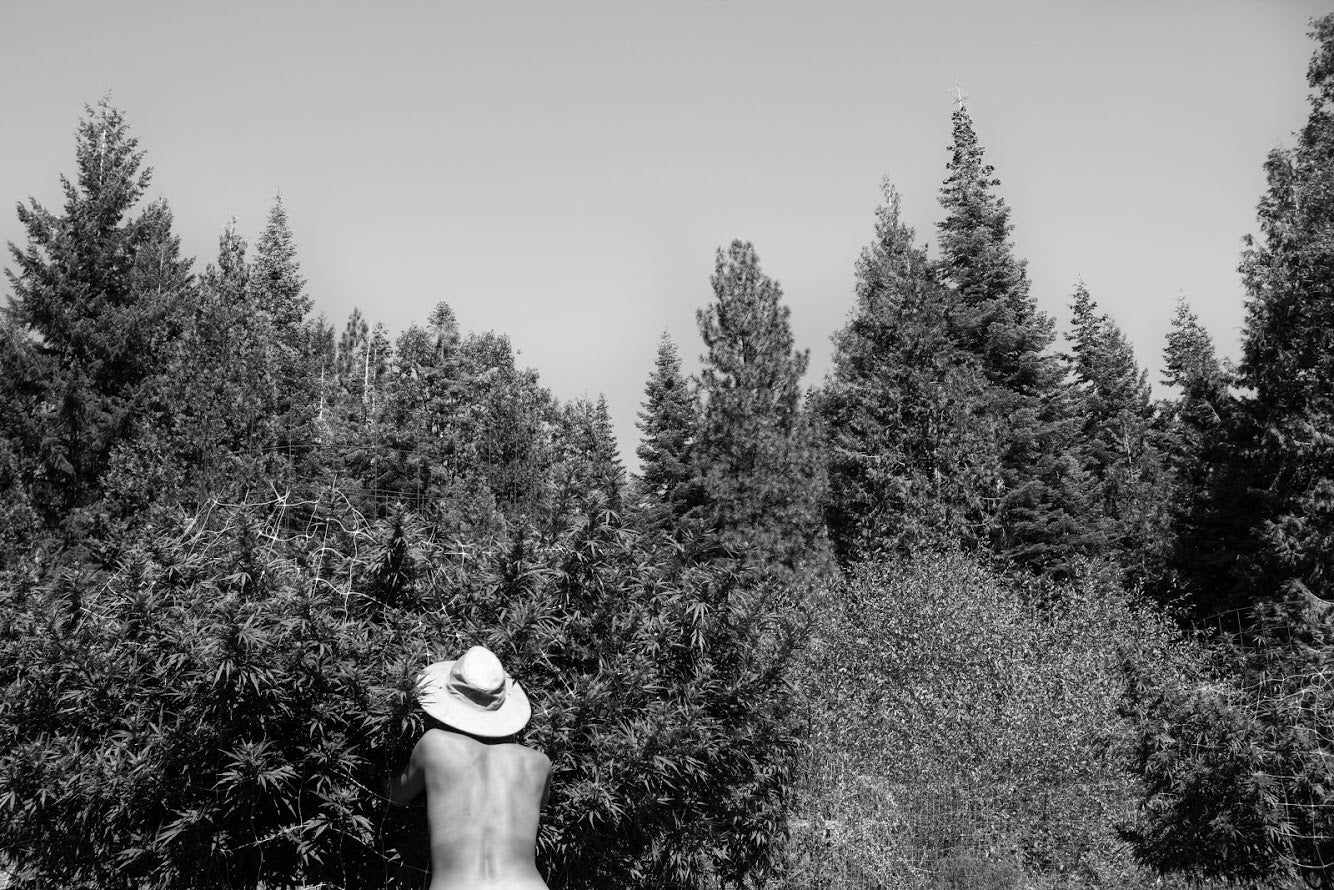Weed gardens aren’t places you stumble across. They are spaces that are intentional hideaways; secret gardens dotted across acres and acres of land.
I was seduced by the cannabis industry. Seduced by the 'rebels' that had taken up residence in the hills of Northern California. Seduced by the simple life that housed them from the hustle and grind of capitalism, coercing into a kind of existential freedom. The world in the hills was a wild west still thriving, built for rebels and the spirited few who were willing to risk it all for a taste of life on the other side of the box.
But when I finally came into my own garden, the realities of what one exchanges for a sense of freedom became all too real.
In my 28th year I felt incredibly lost. Living through the pinnacle of my Saturn return, my mind was full of questions in a world with no answers. I hoped the garden would be a place of reflection and stillness to work out the confusion my twenties had bestowed upon me. But the garden seemed to only offer more questions.

Weed gardens aren’t places you stumble across. They are spaces that are intentional hideaways; secret gardens dotted across acres and acres of land—a means for cultivation of a new kind of gold rush. Or rather, a green rush. These gardens are a no man’s land taking up space where only the rebels choose to hide.
My own garden of residence was lodged in the trees at the end of a long, dirty road—an expansive twisting drive of bumps and potholes covered in a red dust that would come to coat my life that summer. The Private Property sign the last distinction of law and order before the true wilderness of my Californian home.
Life on a mountain was an isolating experience; the plants and dogs my only confidantes. And the world was unfolding in chaos on the other side of my gate.


Every morning started the same. Up with the sun, NPR as my companion. Morning light would filter through the trees, and bad news would filter in through the radio speaker. The world’s news came through a crackling newscaster’s voice. It told me when a bomb exploded on a train in NYC, told me when Leonard Cohen died, told me when the riots broke out in Charlotte for three days. It told me Hillary Clinton’s emails had been hacked, told me Trump was a pussy grabber, told me dogs were after Indigenous protestors at Standing Rock.
Told me Trump would be our new president.


It was a strange time to be stuck on a mountain. It seemed each day outside my eden was a continuation of a downward spiral that no one had been expecting—a darkness exposing itself; one that had been looming in the cracks during the optimistic days of Obama’s presidency. The world was blanketed in changing hierarchies, and the only thing that connected me to that reality was the small, half-broken radio I carried.
The loneliness of the mountain was biting. It molded each day with solitude and separation, a growing sense of helplessness as democracy seemed to collapse. The American Dream is often riddled with a longing for outcast independence—the cowboy, the explorer, the wanderer. Yet the ego dies a slow death without another soul to feed it. In my isolation and helplessness I nestled in amongst the plants.

In its simplest moments, the life of a farmer is just a conversation with the natural world. Not so much a farmer but a caretaker; a parent to the small bits of magic growing by your hands to be disseminated.
Maybe on their best days, a farmer becomes a sorcerer in the confines of their garden, catapulting medicine into the world through their time, focus, and attention.


I didn’t find the answers I was looking for on the mountain. When the season was finally over, I returned to civilian life, weighted by sun and rain and too many conversations with myself. I spit out of the garden in a snowstorm, and although isolation had been my home, with the white flurries all around me, I couldn’t have found my way back even if I had wanted to. I found that instead of a space to reflect, isolation became a place to escape.
When I read through my journal from that time, this line stands out: “The outcasts, they’re suited for each other. I suppose we’re all suited for each other, isolationists wanting to be loved.”
Who I once thought of as rebels I now saw as hermits taking up refuge. Hidden in the hills that might protect them from the wild unknown of society, watching the world from a perch out in the distance.







